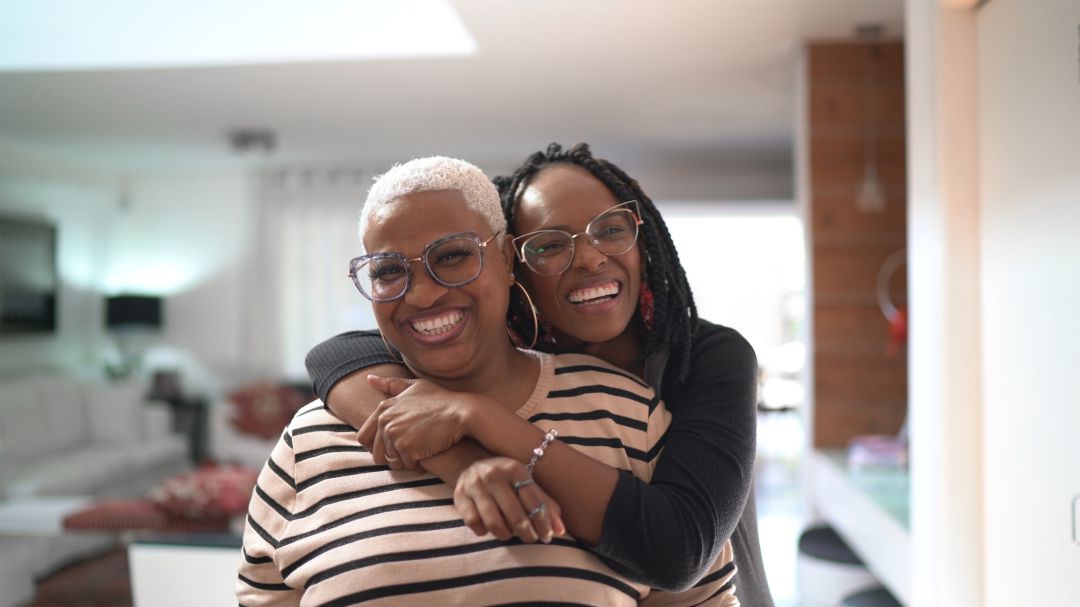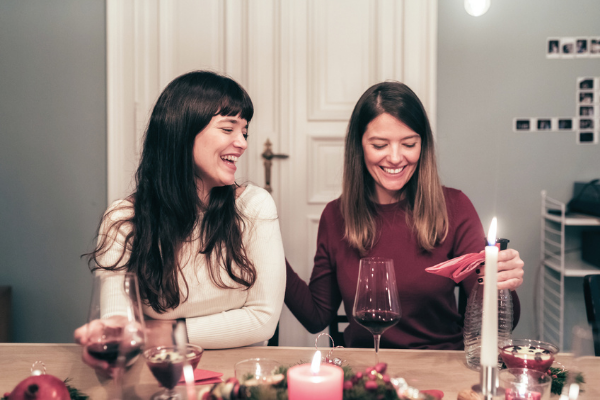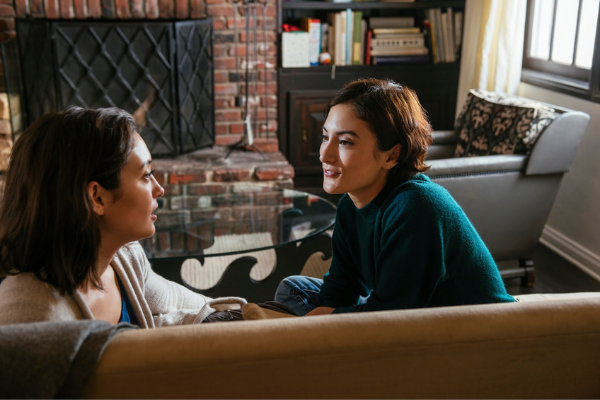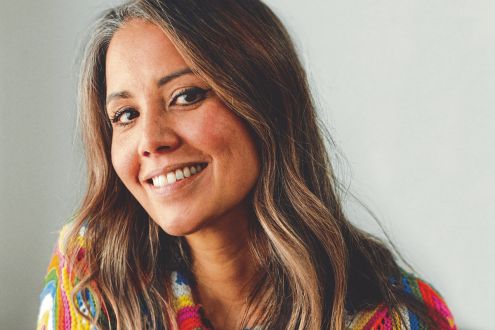‘We are family, I got all my sisters with me’: How to have a harmonious relationship with your siblings
It’s a relationship that can span a lifetime – but can be a bumpy ride. Rebecca Frank explores how we can enjoy time with our siblings, without rivalry rearing its ugly head

Whether we’re heading to our parents for Christmas, or have invited the whole family to ours, chances are we’ll spend more time than usual with our brothers and sisters in the coming weeks. And while the relationship you share with them is one that’s likely to be underpinned by much love, it can also be fraught with difficulty.
When it comes to families, we tend to think a lot about our relationship with our parents and how it has shaped us, overlooking that with our siblings. Yet this unique relationship is equally formative, in both the way we relate to others and how we view ourselves. Conflict among adult siblings can cut deep, but putting our grievances behind us might be easier than we realise.
The way we relate to our siblings as adults usually reflects the relationships we formed as children. ‘The adults in your life and your siblings form the first experience of being in a group of humans,’ says the psychotherapist Philippa Perry. ‘How that whole group functions and how the different people interact make a sort of blueprint in your mind of how these relationships work. And because such a way of interacting was and is normal for you, the way you relate to others as adults will be largely outside of your awareness.’
Linda Blair, a clinical psychologist, says that most sibling rivalry comes down to an innate competitiveness, which is perfectly normal – and largely out of our control. ‘Without you even knowing it, this competition has been there from the beginning, when you were fighting to get the best resources from your parents – attention, affection, food and warmth.’ This primal need to jostle and prove yourself to be more important than your siblings heightens when, as adults, you’re all back together – at times such as Christmas. ‘We think we’ve left it behind because we’re grown-ups, but the trouble is that when emotions are triggered – like they often are when we’re all crowded in one place – we go back to square one.’
It’s often said that we can choose our friends but not our family, and Perry is blunt about the fact that not all sibling relationships are equal: ‘Some people are friends with their siblings, some are fond of them but have little in common with them and others find that being among their siblings brings up unpleasant feelings, so they try not to have too much to do with them,’ she says. ‘We like or dislike, choose or choose not to be friends with someone largely because of how we feel when we are with them.’
In a bigger family, Perry adds, it’s highly likely that you’ll have a sibling to whom you feel closer – but this doesn’t mean you value the others any less. ‘You can appreciate them for their different ways of being, different talents, different quirks and different ways of experiencing and looking at the world,’ she explains. ‘We need a variety of people in our lives.’
 When a sibling relationship is harmonious, it can be the most special and unique bond, which is why experts believe it’s worth working hard to repair any cracks. In her new podcast, Siblings In Session, Perry takes a pair of adult siblings and unpicks their feelings towards each other, interviewing them separately before bringing them together at the end of the episode. It’s a heartwarming and occasionally heartbreaking listen, and most people will relate to some of the emotions, dynamics and journeys experienced.
When a sibling relationship is harmonious, it can be the most special and unique bond, which is why experts believe it’s worth working hard to repair any cracks. In her new podcast, Siblings In Session, Perry takes a pair of adult siblings and unpicks their feelings towards each other, interviewing them separately before bringing them together at the end of the episode. It’s a heartwarming and occasionally heartbreaking listen, and most people will relate to some of the emotions, dynamics and journeys experienced.
It’s why Perry urges anyone harbouring difficult feelings towards a sibling to brave a tough conversation. It might be painful but could also prove life-changing. ‘Every sibling I spoke to assumed something about the other that turned out not to be true,’ says Perry. ‘I’m hoping that listening to the podcast will help people unpack their own misconceptions and enable them to get back on the same page and feel closer.’
Having those conversations and trying to put old grudges aside is always worth the effort, believes Blair, who is heartened to see how many siblings do grow closer in later life. ‘Nobody shares this history with you in the whole world,’ says Blair. ‘If your relationship is damaged, I would work hard to repair it. Our whole identity is about what we did as well as what we’re doing, and those shared memories are very precious.’
We are family
We asked our experts to help us address some common sibling dilemmas…
This comes down to competition, explains Blair. ‘The parenting stage can often unearth old feelings of rivalry,’ she says. This can be especially felt around grandparents, when comparisons of time spent, effort made, childcare responsibilities and the like all push our buttons. ‘When we’re back in the presence of our parents – for example at Christmas – we revert to being children again.’
Blair says the key is to put logic before emotion and suggests writing down the things you admire about your siblings and reading through the list several times before you meet up, so these attributes are near the front of your mind. ‘When you allow the emotions to subside and your logical brain to kick in, you’ll be able to see things differently and won’t let your siblings or parents push your buttons in the same way.’
‘We lost our remaining parent recently and I’m concerned about our relationship without our parent to hold the family together’
‘Often, sibling relationships improve when parents aren’t around any more, and I see many siblings become much closer again in later life,’ says Blair. If you fell out around the time of the death of your parent, it can be hard, especially if your grievances centred around caring for the other parent. However, once the dust settles and emotions calm, it’s worth having a conversation with your sibling and explaining why you behaved the way you did and why you had problems with how they behaved. It might be that you both made assumptions about each other that weren’t actually true.
‘When we get together as a family, it always blows up at some point between me and my siblings’
Gathering under one roof when we’re exhausted from all the preparation for Christmas and low in endorphins from the lack of daylight and exercise can create the perfect storm. Try the writing exercise, left, before you get together with your siblings, so you start with a positive frame of mind.
Blair says it’s also vital if you’re staying together that you have some space. ‘We know from research on animals that if you put people together in an overcrowded area they get aggressive. Everybody needs a place to which they can retreat.’ If there’s not much room inside, go for a walk or a few breaths of fresh air in the garden, and get the calming benefits of light and nature too.
It might reassure you to know that children who fought a lot are more likely to be close as adults. ‘Any strong emotions bond you closely,’ explains Blair.

‘I’m the youngest child and feel as if I’m always treated like the baby and rarely taken seriously. Can we ever break out of the roles we’ve held since childhood?’
We tend to keep the roles formed as children, often by birth order and sometimes by the labels our parents gave us – and that’s fine if you are happy in that role.
The older child is often more serious and studious, and the youngest the cute, cared-for one – and both these roles can be advantageous. However, if you want to be seen differently, Perry says you can’t change other people, only yourself. ‘If you feel as if your siblings are stuck in how they see you, you’re probably also stuck in trying to persuade them differently. Try changing the way you behave around them. For example, if you continue to chase after them to show them that you’re a grown-up, you’re keeping yourself in that pleading, youngest child position.’
Ask other people how they see you too. ‘It’s important to have more human mirrors than just our families to see a reflection of ourselves, so we have a fuller picture of who we are and how we can be experienced by others.’
Next steps
Read: Birth Order by Linda Blair (Little, Brown, £12.99) will help you better understand how your position in your family can affect your character.
Listen: The touching and enlightening podcast Siblings In Session, with psychotherapist Philippa Perry, is available on Audible and takes you on an emotional journey with six pairs of siblings.
Watch: Little Women is the heartwarming, Oscar-nominated film adaptation of Louisa May Alcott’s classic tale of four sisters, Jo, Meg, Amy and Beth, coming of age in 19th-century Massachusetts. Have the tissues ready!
Expert advice
With thanks to Philipa Perry and Linda Blair for their expert advice.
Philippa Perry is a psychotherapist, agony aunt for ‘The Observer’ and author of ‘The Book You Wish Your Parents Had Read’ (Penguin, £9.99).
Linda Blair is a clinical psychologist, writer and author of several books, including ‘Siblings’ (Hodder & Stoughton, £12.99).
Photographs: Getty Images









